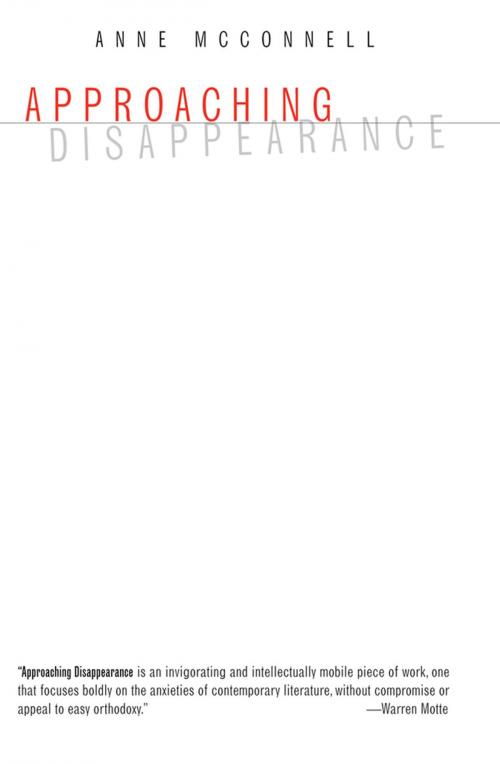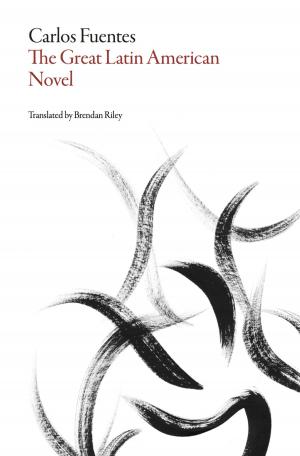| Author: | Anne McConnell | ISBN: | 9781564788412 |
| Publisher: | Dalkey Archive Press | Publication: | March 5, 2013 |
| Imprint: | Dalkey Archive Press | Language: | English |
| Author: | Anne McConnell |
| ISBN: | 9781564788412 |
| Publisher: | Dalkey Archive Press |
| Publication: | March 5, 2013 |
| Imprint: | Dalkey Archive Press |
| Language: | English |
Maurice Blanchot (1907-2003), one of the most influential figures of twentieth-century French literature, produced a wide variety of essays and fictions that reflect on the complexities of literary work. His description of writing continually returns to a number of themes, such as solitude, passivity, indifference, anonymity, and absence—forces confronting the writer, but also the reader, the text itself, and the relations between the three. For Blanchot, literature involves a movement toward disappearance, where one risks the loss of self; but such a sacrifice, says Blanchot, is inherent in the act of writing. Approaching Disappearance explores the question of disappearance in Blanchot's critical work and then turns to five narratives that offer a unique reflection on the threat of disappearance and the demands of literature—work by Franz Kafka, Jorge Luis Borges, Louis-René Des Forêts, and Nathalie Sarraute.
Maurice Blanchot (1907-2003), one of the most influential figures of twentieth-century French literature, produced a wide variety of essays and fictions that reflect on the complexities of literary work. His description of writing continually returns to a number of themes, such as solitude, passivity, indifference, anonymity, and absence—forces confronting the writer, but also the reader, the text itself, and the relations between the three. For Blanchot, literature involves a movement toward disappearance, where one risks the loss of self; but such a sacrifice, says Blanchot, is inherent in the act of writing. Approaching Disappearance explores the question of disappearance in Blanchot's critical work and then turns to five narratives that offer a unique reflection on the threat of disappearance and the demands of literature—work by Franz Kafka, Jorge Luis Borges, Louis-René Des Forêts, and Nathalie Sarraute.















